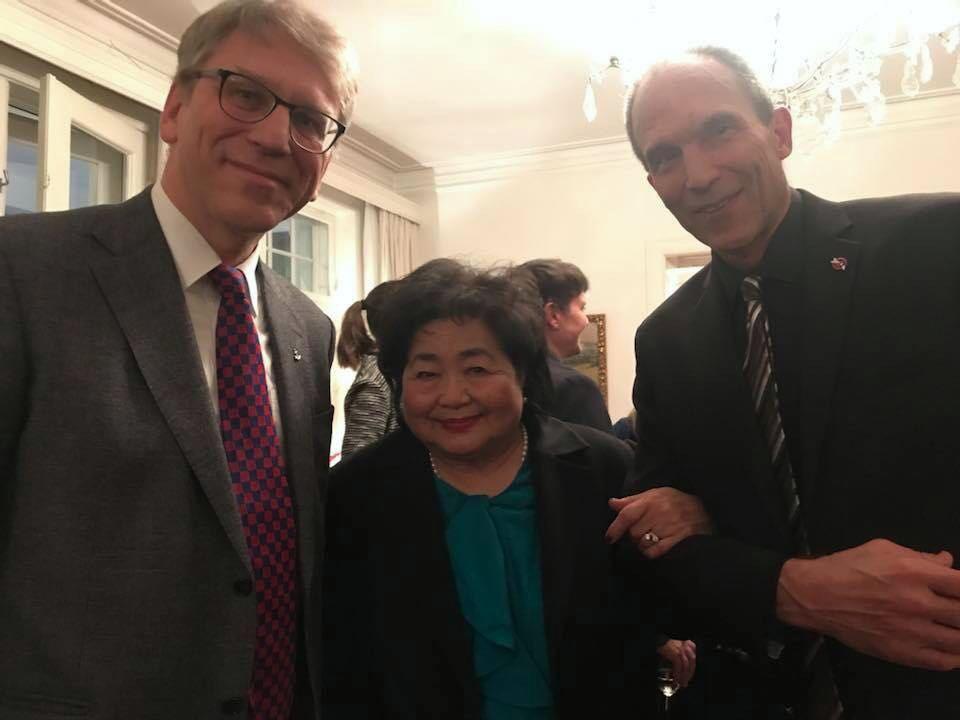First event in the Nobel Peace Prize weekend? A seminar at the Norwegian Red Cross on what a nuclear weapon could do to Oslo.
The dark winter clouds hanging over the city are a backdrop for careful assessments of nuclear disasters and the inadequacy of a feasible response. But partners and supporters of the International Campaign to Abolish Nuclear Weapons (ICAN), this year’s Nobel Peace Prize laureate, fill the room. A sense of excitement and shared resolve is evident. The same is true among ICAN partners arriving in Oslo and the wide civil society network including churches gathering on-line around the world to celebrate the collaboration and commitment that led to the Nobel Prize.
ICAN’s witness along with the 2017 Nobel Peace Prize: There’s a choice to make—the end of nuclear weapons or the end of us; we can and will end nukes starting with this year’s new treaty. It’s a witness that echoes church concerns in every region of the world.
A Red Cross witness with the ICAN Nobel Peace Prize: Today, 72 years after the atomic bombings in 1945, Red Cross hospitals in Japan are still treating thousands of victims. Now increased care is also needed for radiation-related illnesses among some 200,000 elderly people who are the children of A-bomb survivors.
The witness of a doctor who helps guide the ICAN campaign: Radiation from decades of nuclear testing has led to an estimated 2.5 million deaths from cancer so far. Some of the radiative elements released remain dangerous for centuries, others for millennia! (Comment: The care of Creation calls for a nuclear-free world, an ecumenical advocacy goal.)
A witness from PAX, an ICAN partner and non-governmental organization founded by Dutch churches: Write to your bank and ask—is my money associated in any way with nuclear weapons? Hundreds of corporations, banks and pension funds have business links to nuclear armaments. With increasing public pressure, a growing number are choosing to divest.






